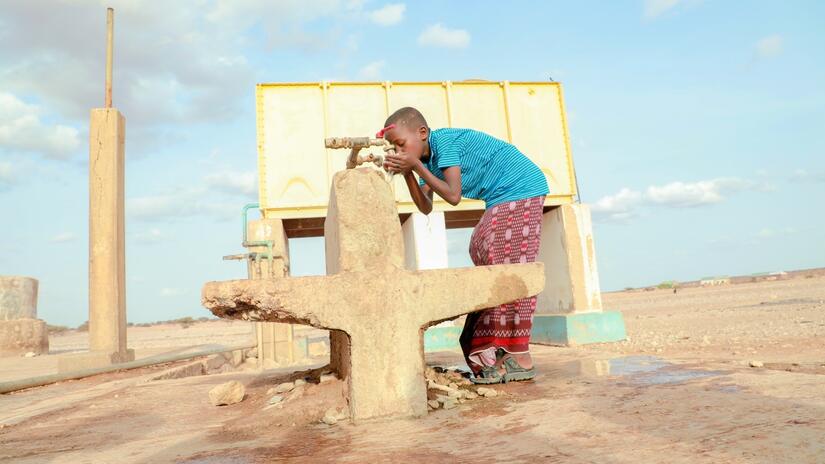Summit was co-hosted by the IFRC and USAID
Extreme heat is a silent, yet formidable adversary that – without action – will kill thousands in coming years. But, as participants at the first-ever Global Summit on Extreme Heat heard, there is plenty that can be done. Countering the worst of extreme heat’s impact will take action from the local to global level.
The Global Summit on Extreme Heat, held on Thursday, was co-hosted by the International Federation of Red Cross and Red Crescent Societies (IFRC) and the United States Agency for International Development (USAID). It brought together political and civil society leaders, representatives of the private sector and those from the world’s most affected communities to discuss best practice and ideas.
Besides the co-hosts Jagan Chapagain, IFRC Secretary General and Samantha Power, USAID Administrator, speakers included John Podesta, Senior Advisor to the [US] President for International Climate Policy, His Excellency Ismail Omar Guelleh, President of Djibouti and Yvonne Aki-Sawyerr, Mayor of Freetown, Sierra Leone, among others.
The keynote address was delivered by IFRC Secretary-General Jagan Chapagain.
He said:
“While hurricanes and floods often capture the headlines, extreme heat quietly exacts a toll on lives and livelihoods . . . In 2024 we declare extreme heat a priority . . . Let us be the architects of resilience, the enablers of hope.”
Chapagain laid out four key actions that need to take place. The first is protecting the vulnerable, particularly those in urban areas and in marginalised communities. The second is investing in early warning systems and anticipatory actions. The third is forging partnerships across borders, and the fourth is putting local communities in the driving seat of change.
Samantha Power, Administrator of USAID, said:
“At a time when some have grown numb with increasingly familiar headlines about ‘hottest days on record’, we absolutely need to resolve never to get used to the scale of this problem, never to get used to the threat it poses to human life.”
Following the summit, an online ‘Heat Action Hub’ has been established where people can share experiences and best practice when it comes to tackling extreme heat. The IFRC and USAID have jointly announced a 'sprint of action’ on extreme heat which will run up to a ‘Global Day of Action on Extreme Heat’ on June 2, 2024.
A recording of the summit can be watched here.
For interviews contact:
IFRC Media
Andrew Thomas
Mobile: +41763676587

